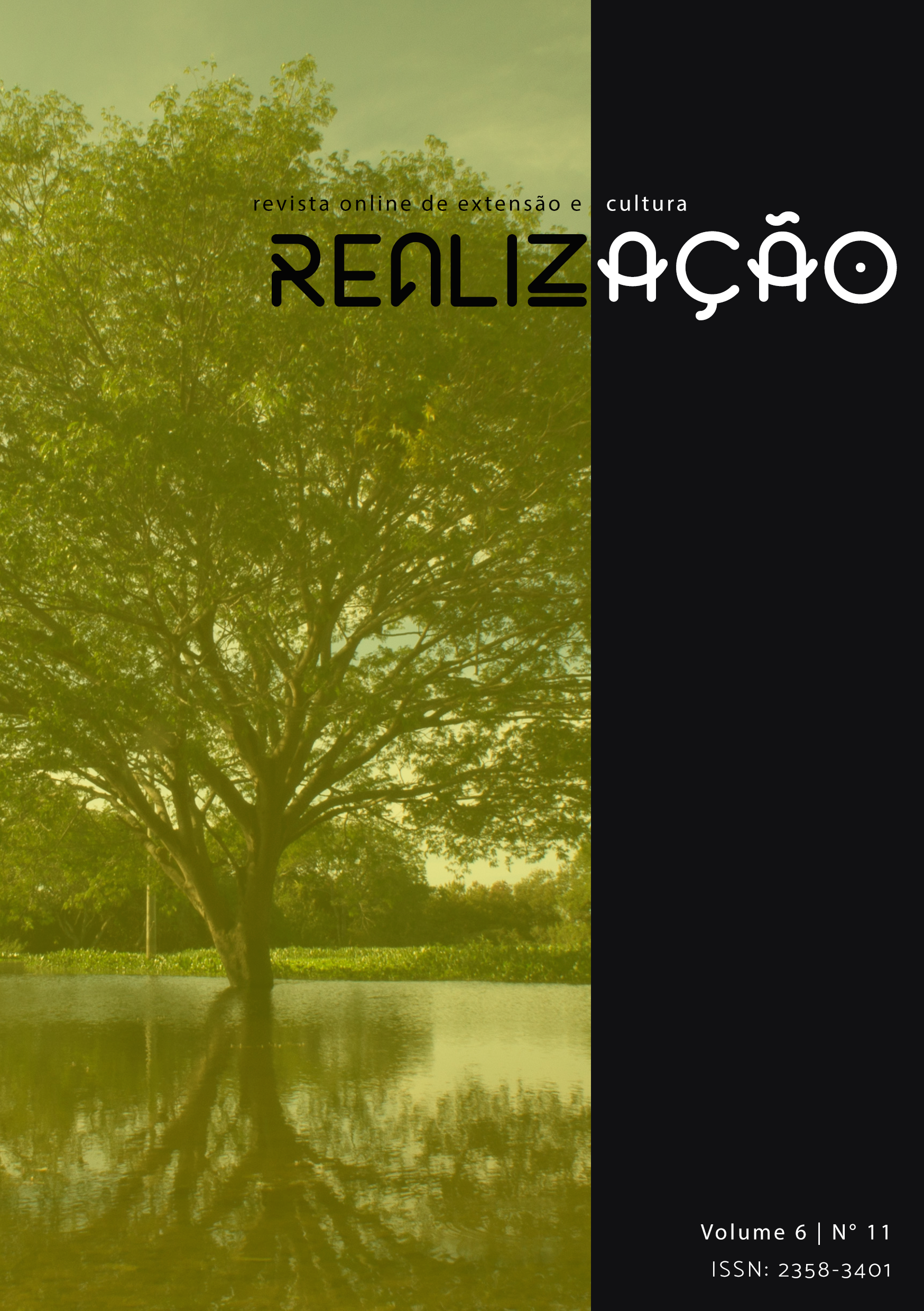Gestão Escolar: um estudo de caso na concepção dos diretores
DOI:
https://doi.org/10.30612/re-ufgd.v6i11.8759Palavras-chave:
Gestão democrática. Gestor. Escola.Resumo
O presente trabalho objetiva apresentar um estudo de caso realizado na disciplina de Gestão Escolar do 4° Semestre do Curso de Pedagogia da Universidade Federal do Mato Grosso do Sul (UFMS) diante das discussões em sala de aula, do qual foi solicitado pela professora que realizássemos uma entrevista com um diretor de uma escola pública ou privada para conhecer como é a função do gestor nestas escolas. As entrevistas foram realizadas com dois diretores de duas escolas públicas municipais, onde estes relataram sobre as dificuldades, as superações e os contrastes encontrados na gestão escolar, além de seus anseios diante das normas impostas e das resistências que enfrentam para administrar os problemas financeiros, pedagógicos e até pessoais que perpassam por toda a escola. A proposta inicial da entrevista é que ela fosse filmada do qual apenas o primeiro entrevistado permitiu que fosse feito desta maneira, já o segundo optou pela gravação da entrevista em áudio, permitindo que colocasse fotos da escola. Desta forma, aqui estão situadas as perguntas realizadas e as respostas dos entrevistados relacionado-as com teóricos que dão alusão a gestão democrática e suas características, promovendo uma análise e reflexão sobre o que é a gestão e como ela é vista hoje por aqueles que atuam nesta área da educação. A partir deste estudo, verificou-se que o gestor escolar exerce um papel de grande responsabilidade perante a comunidade escolar e que quando este trabalho é realizado com a participação efetiva de todos, a gestão democrática torna se possível.Downloads
Referências
BRASIL. Dados do Ideb. INEP (Instituto Nacional de Estudos e Pesquisas Educacionais Anísio Teixeira). Disponível em: portal.inep.gov.br/web/guest/ideb. Acesso em Dezembro de
CURY, Carlos Roberto Jamil. Gestão Democrática da Educação: exigências e desafios. Revista RBPAE, v.18, n° 2, Jul/Dez. 2002. Disponível em: <https://scholar.google.com.br> Acesso em Novembro de 2017.
DESSEM Maria Auxiliadora; POLONIA, Ana da Costa. A Família e a Escola como contextos de desenvolvimento humano. Paideia (Ribeirão Preto), v. 17, p. 21-32, 2007.
LAKATOS, Eva Maria. FUNDAMENTOS DE METODOLOGIA CIENTÍFICA. 5. Ed. São Paulo: Atlas, 2003.
LUCK, Heloisa. Dimensões da gestão escolar e suas competências. Ed. Positivo, Curitiba, 2009.
PARO, Victor Henrique. A educação, a política e a administração: reflexões sobre a prática do diretor de escola. Educação e Pesquisa, São Paulo, v.36, n°3, pg.763 – 778, Set/Dez de 2010.
TRIVIÑOS, Augusto Nibaldo Silva. Introdução à pesquisa em ciências sociais: a pesquisa qualitativa em educação. São Paulo: Atlas, 1987.
VEIGA, Ilma Passos Alencastro. Projeto político-pedagógico da escola. Papirus Editora, 2005.
Downloads
Publicado
Como Citar
Edição
Seção
Licença
Copyright (c) 2019 Karla Alexandra Benites Florenciano, Bianca Rodrigues Marcelino Alexandre, Maria Elena Aquino Dutra

Este trabalho está licenciado sob uma licença Creative Commons Attribution-NonCommercial-ShareAlike 4.0 International License.
Autores que publicam nesta revista aceitam as normas de publicação, bem como, concordam com os seguintes termos:
(a) O Conselho Editorial se reserva ao direito de efetuar, nos originais, alterações da Língua portuguesa para se manter o padrão culto da língua, respeitando, porém, o estilo dos autores.
(b) Autores mantêm os direitos autorais e concedem à revista o direito de primeira publicação, com o trabalho simultaneamente licenciado sob a Creative Commons Atribuição-NãoComercial-CompartilhaIgual 4.0 Internacional que permite: Compartilhar — copiar e redistribuir o material em qualquer suporte ou formato e Adaptar — remixar, transformar, e criar a partir do material. A Creative Commons Atribuição-NãoComercial-CompartilhaIgual 4.0 Internacional considera os termos seguintes:
- Atribuição — Você deve dar o crédito apropriado, prover um link para a licença e indicar se mudanças foram feitas. Você deve fazê-lo em qualquer circunstância razoável, mas de nenhuma maneira que sugira que o licenciante apoia você ou o seu uso.
- NãoComercial — Você não pode usar o material para fins comerciais.
- CompartilhaIgual — Se você remixar, transformar, ou criar a partir do material, tem de distribuir as suas contribuições sob a mesma licença que o original.
- Sem restrições adicionais — Você não pode aplicar termos jurídicos ou medidas de caráter tecnológico que restrinjam legalmente outros de fazerem algo que a licença permita.


